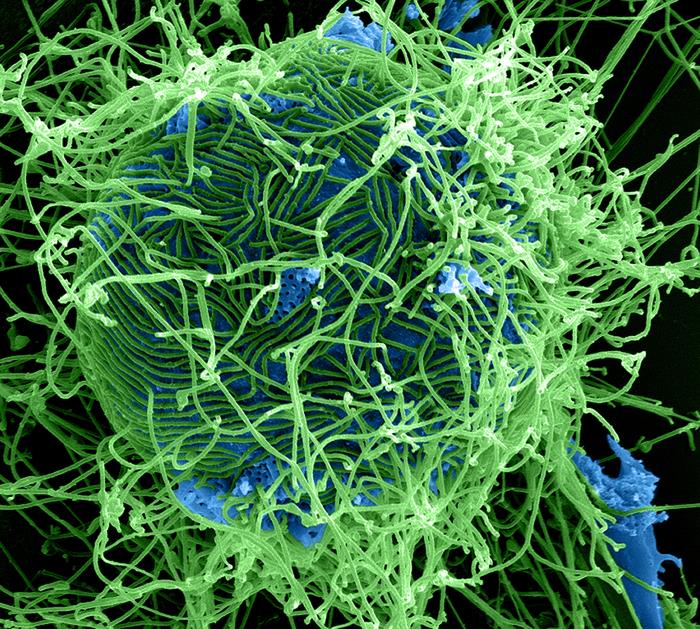Complications After Ebola Survival

A new report in the New England Journal of Medicine documents the lasting effects of survival from the Ebola virus, including muscle pains, nerve damage, and vision loss.
Ebola, a single stranded negative sense RNA virus of the family Filoviridae, is a hemorrhagic virus that caused thousands of deaths through most of 2014 and into 2015. There is no known cure for the virus, though there have been vaccine and pill successes in the past year. Patients are instead put on palliative care and treated for complications such as dehydration, a process that puts a significant strain on hospital systems and which only half of patients survive.
Those that survive the illness in past outbreaks have complained of after-effects, but this new report in NEJM is the first comprehensive analysis of all patients treated in the United States to determine the most prevalent and debilitating post-infection issues. The questionnaire and analysis were initially performed in March 2015.
SOURECE; OUTBREAK NEWS TUDAY
Of the physical symptoms, arthralgia (joint pain), alopecia (hair loss), and general muscle fatigue were the most common (75% of patients). Neurological issues, such as insomnia and depression/anxiety, occurred in 62% and 50% of patients, respectively. Other symptoms included heart problems (50%), shortness of breath (38%), and hearing loss (12%).
Interestingly, 62% of patients had general blurriness in vision, and 40% of those patients had to eventually be treated for severe eye inflammation. It has been recently found that the eye is “immunoprotected”, meaning the immune system rarely mobilizes to the ocular cavity. While this fact is taken advantage of in stem cell treatments for diseases like macular degeneration, it also allows viruses and bacteria to live in and around the eye without any competition. As documented in National Geographic’s Breakthrough series’ highlight of Dr. Ian Crozier, an Ebola survivor, those that are infected with Ebola can harbor live virus in their eyes, making their tears and ocular secretions potentially infectious. Ongoing tests are still working to determine how infectious these individuals are.
Overall, most of the symptoms were present months after initial onset and some, like hair loss, never went away. While these are small issues compared to the debilitating and deadly effects of Ebola infection, they can still be life altering and should be studied further to aid the thousands of potential sufferers in West Africa.
Edward Marks is a PhD student at the University of Delaware. His research involves the healing of myocardial tissue after major cardiac events using nanomedicine techniques, with the goal of pushing any advancement directly into the clinic. Edward received his BS from Rutgers University and Masters from the University of Delaware.

0 comments: